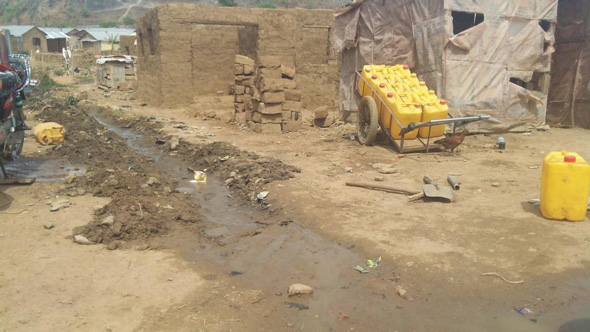Nigerian journalist Ameto Akpe, who recently spoke as part of the Wilson Center’s “
Nigeria Beyond the Headlines” event, has published a
new article on water scarcity in Abuja, Nigeria’s capital city, for the Pulitzer Center on Crisis Reporting’s “
Waiting for Water” series.
Abuja faces acute shortages due to insufficient government planning and a major population boom, she writes:
The FCT [Federal Capital Territory] has seen an unprecedented population growth in the last 10 to 15 years. In 2006, population growth rate was pegged at 9.3 percent, the highest rate in the country and way above what the city’s planners envisaged. Recently, increased migration to the city has been spurred by terrorism attacks in the North, numerous incidences of kidnappings in the South, and the generally high unemployment rate in the country as millions of young graduates pour into the city in search of the very elusive promise of a “government job.”
Jibril Ibrahim, the Director of the FCT water board, the agency solely responsible for the production and supply of water in the territory, admits that the authorities did not see this coming. He says this unexpected population growth has overwhelmed existing water infrastructure and ruined the careful plans for water service delivery in the territory.
“This is what has made nonsense of the design we have in the city,” Ibrahim says. “Nobody believed that we were going to have this huge number of people and not even within this space of time.”
Patience Achakpa, executive secretary for the Women’s Environment Programme, believes that the government should have foreseen the potential attraction a city like Abuja presents to the urban migrant and should have put in place more efficient plans.
This lack of foresight means there is no pipe reticulation in many districts, particularly in peripheral areas. Even government housing projects are routinely built without being connected to the grid, simply lacking the crucial distribution network that would bring water to individual homes. Thus each household is forced to sink its own borehole, which in the long run has obvious implications on ground water.
Read the full article on the Pulitzer Center website.
Photo Credit: A water point in Gishiri, Abuja, courtesy of Ameto Akpe/Pulitzer Center.

 A Publication of the Stimson Center.
A Publication of the Stimson Center.




